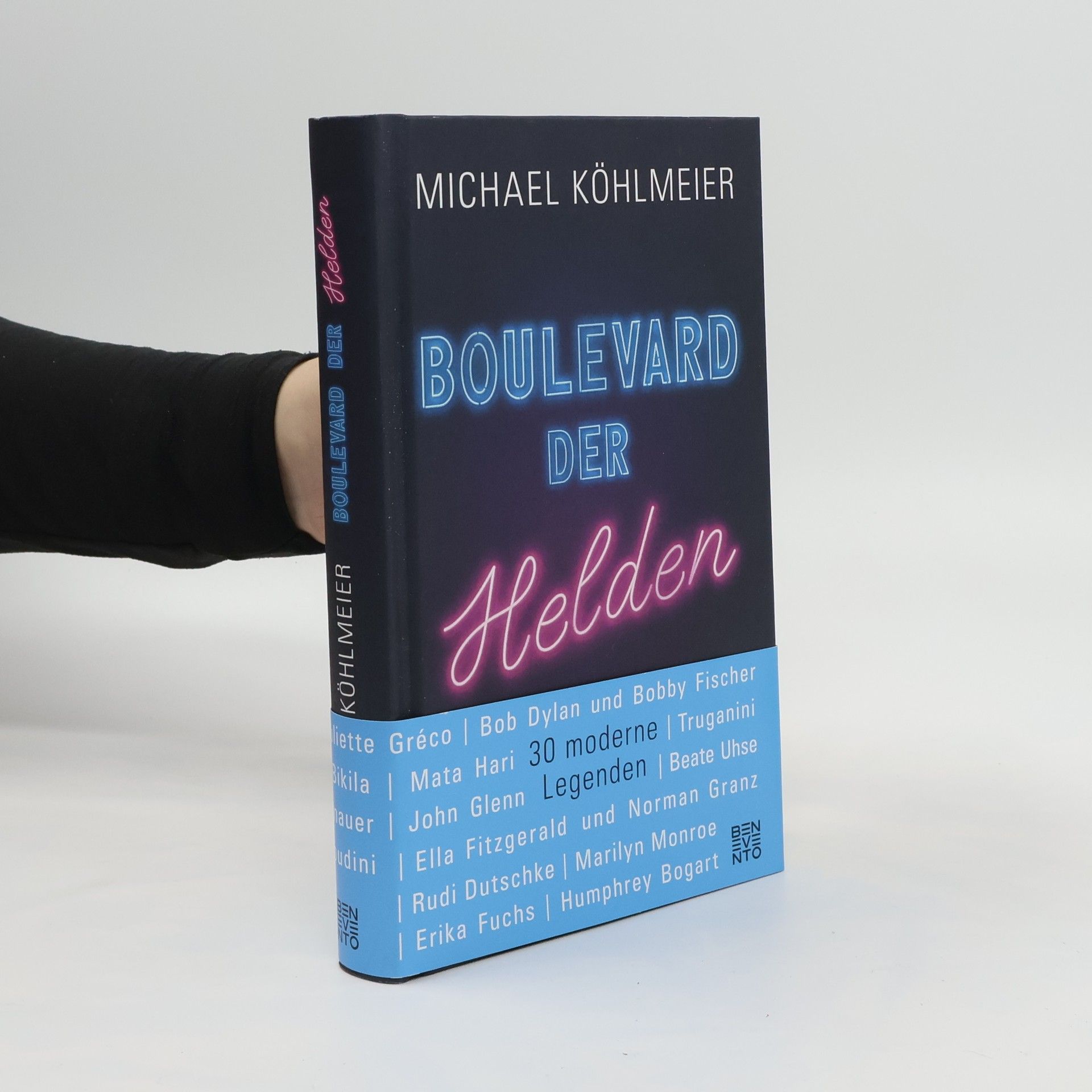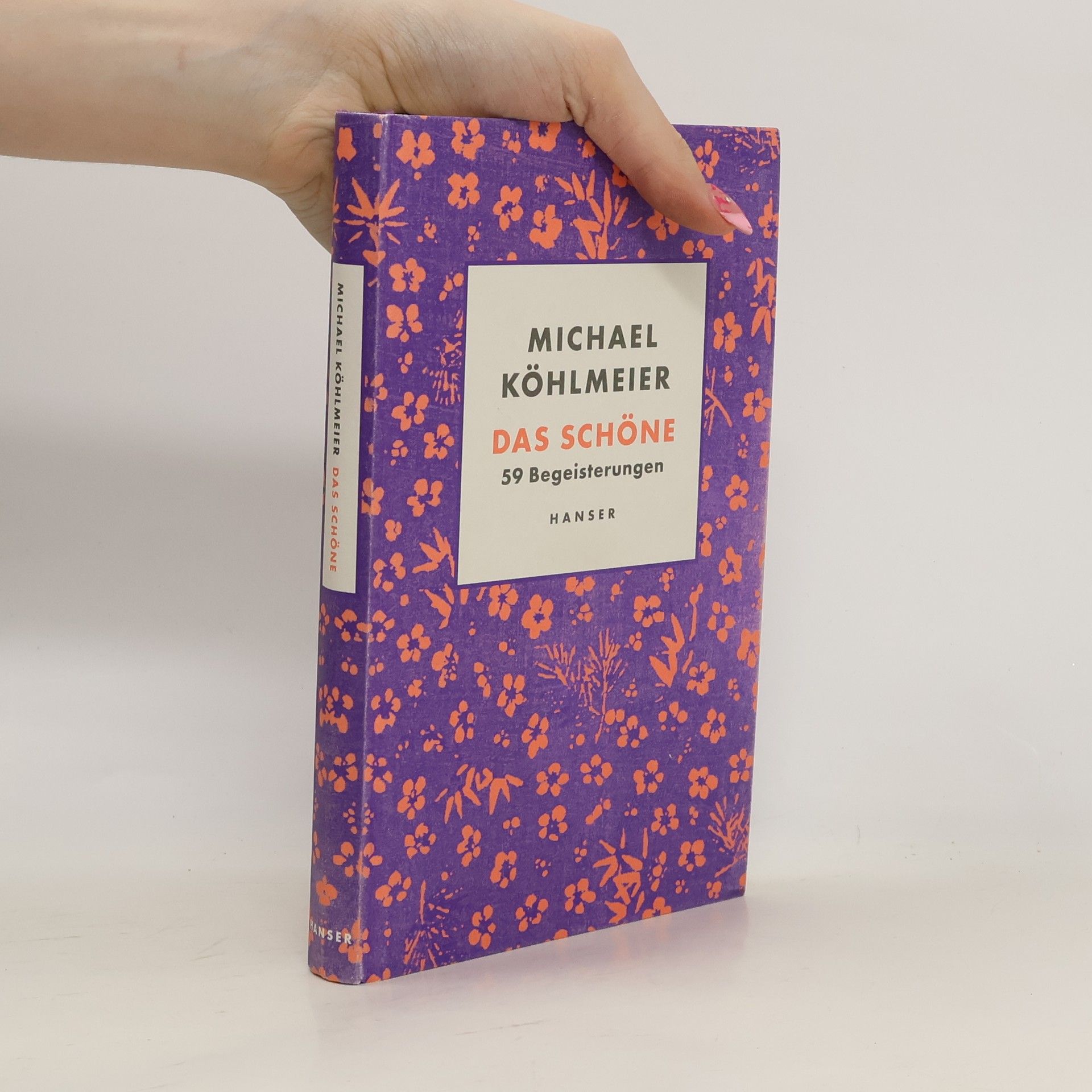Alles fing an mit Grace Kelly. Sie sprach den Off-Text zu Robert Dornhelms erstem Film, der 1977 für den Oscar nominiert wurde. Alles fing an in einem kleinen Haus, das Dornhelm für Michael Köhlmeier in Hollywood gemietet hatte, damit er Filmstoffe entwickle. Mehr als vierzig Jahre sind sie befreundet, der österreichische Regisseur mit rumänischen Wurzeln und der Schriftsteller. Jetzt haben sie sich 13 Tage lang Zeit genommen, um einander ihre Geschichten zu erzählen, Geschichten zum Weinen komisch und zum Lachen traurig: über Herkunft und Ankunft, über Kapitalisten und Kommunisten, über schöne Mütter und abwesende Väter und immer wieder über Filme, Schauspielerinnen, Bücher. Eine kleine Geschichte des Kinos und eine große Abschweifung des Lebens.
Michael Köhlmeier Book order (chronological)
Michael Köhlmeier is an Austrian writer whose works are characterized by a deep insight into human nature and the complexities of life. His writing often explores universal themes through engaging narratives and a distinctive style. Köhlmeier skillfully navigates various literary forms, enriching his artistic expression. His work resonates with readers due to its timeless quality and wisdom.


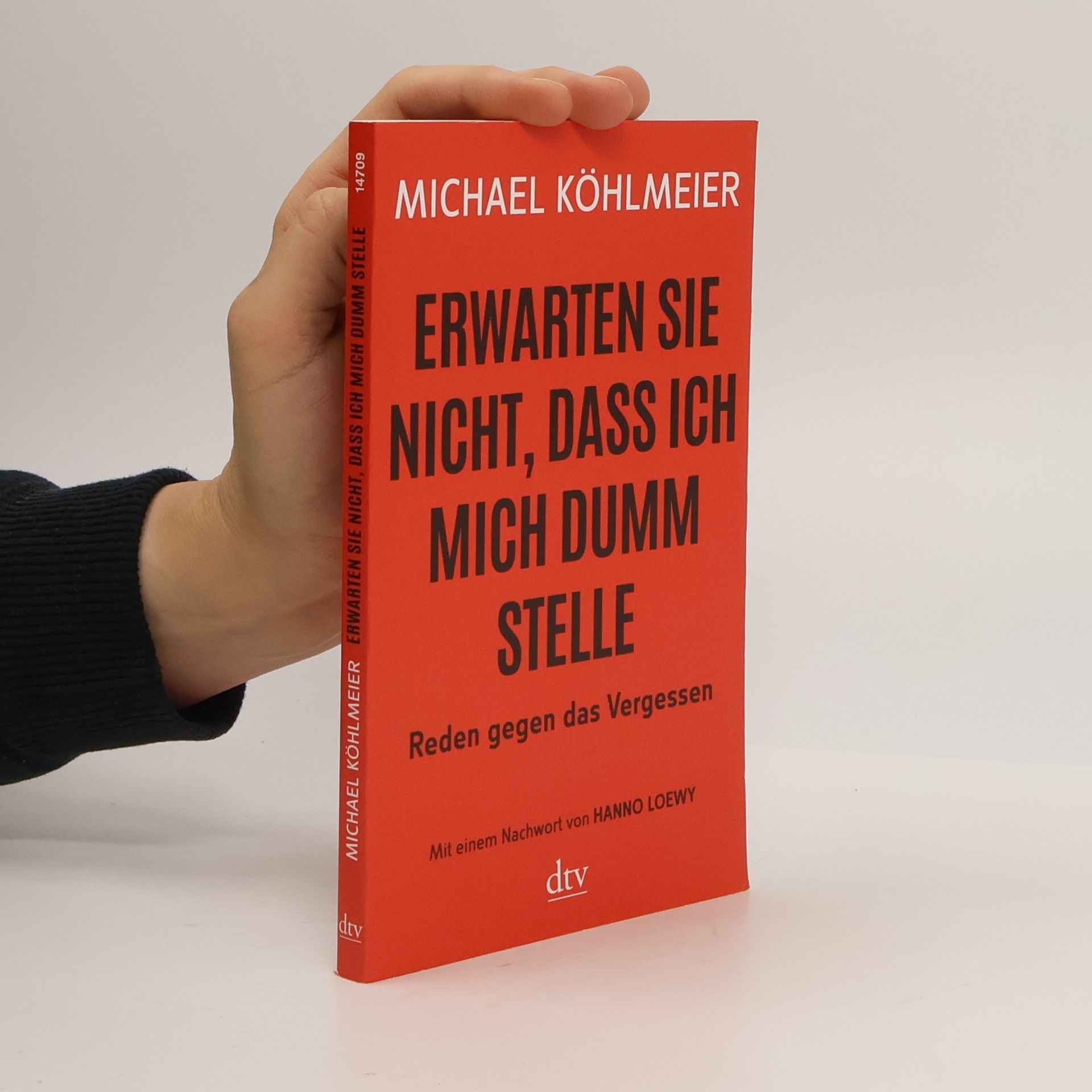

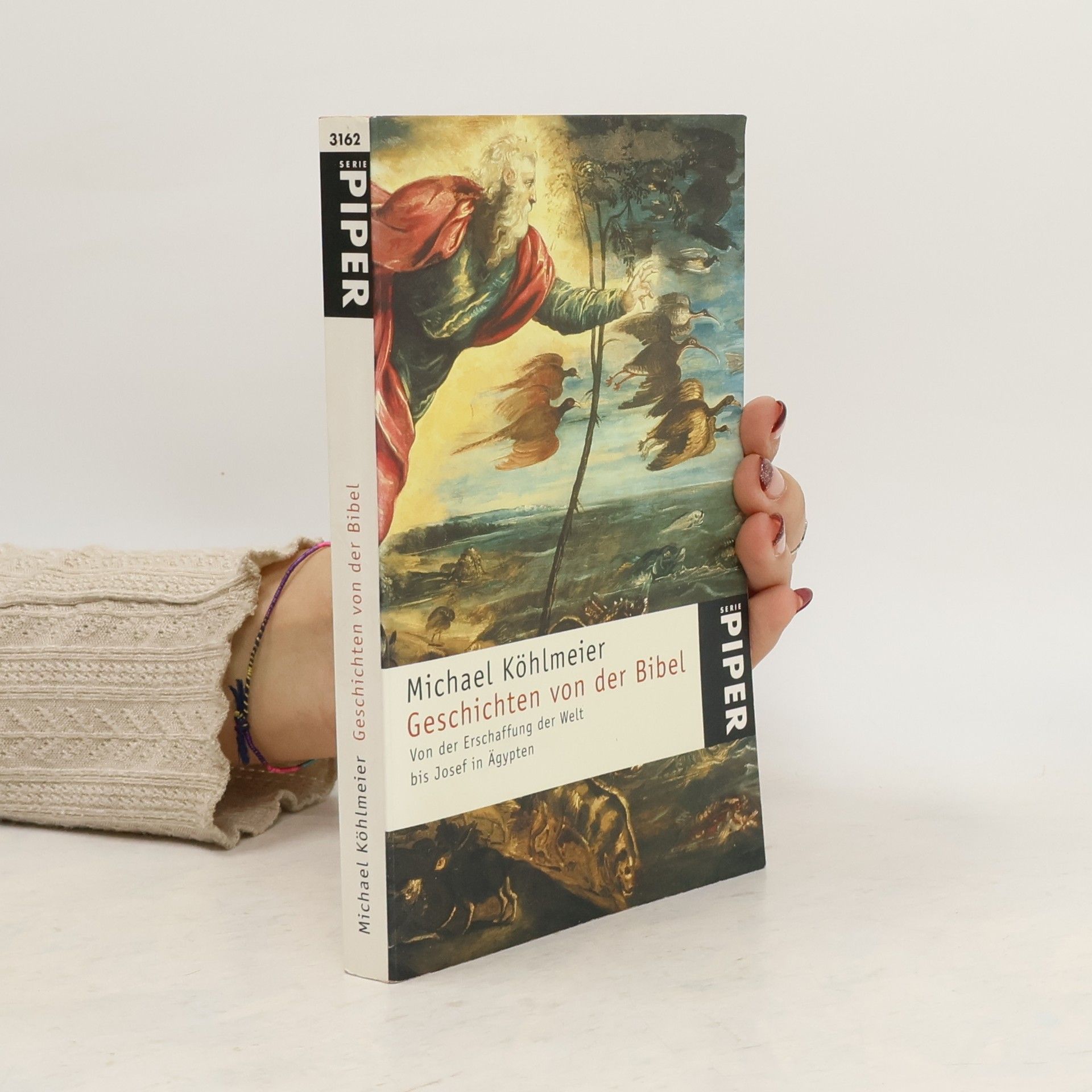

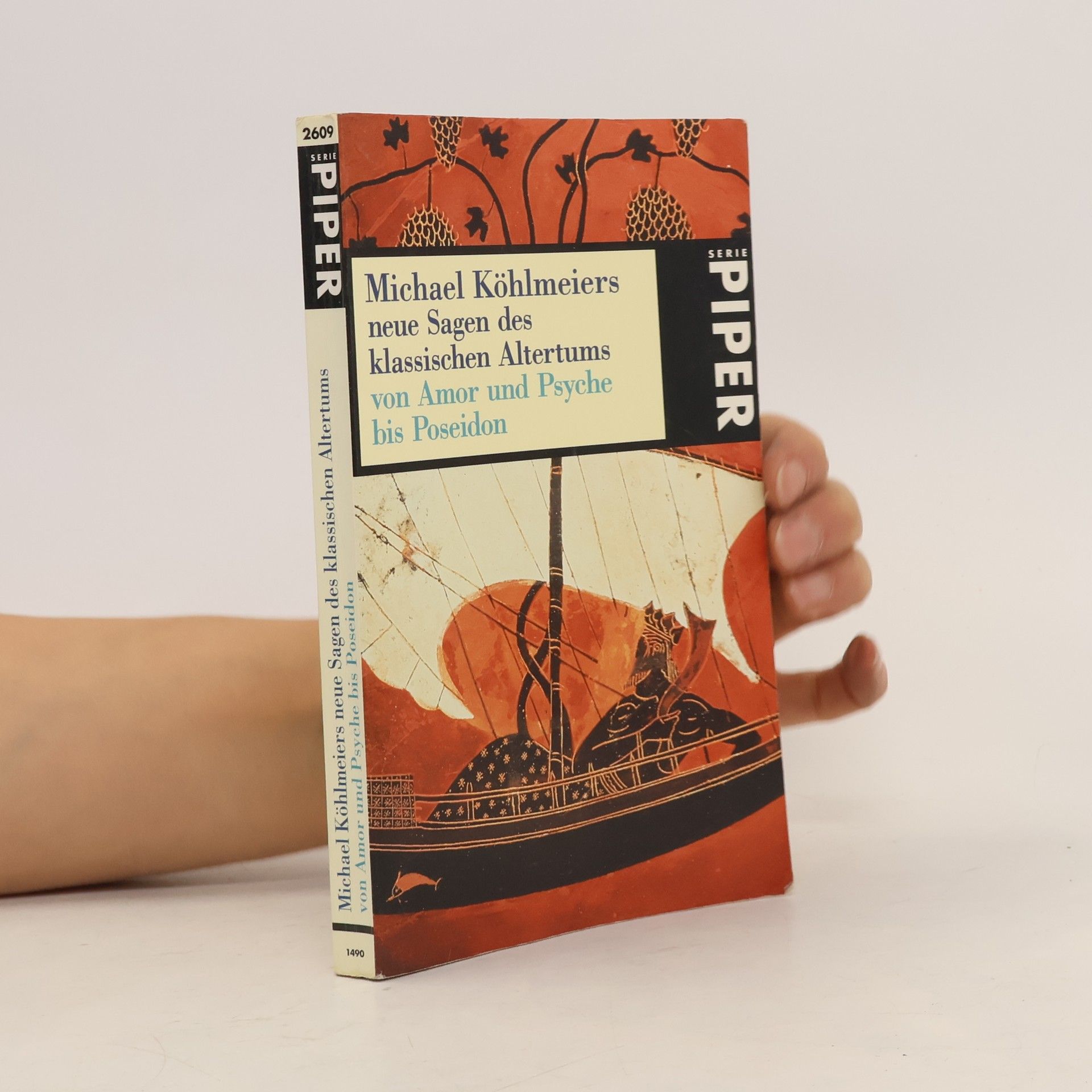
Die Verdorbenen
- 160 pages
- 6 hours of reading
Was entsteht aus Liebe, Besessenheit und Schuld? Michael Köhlmeiers neuer Roman - eine meisterhafte Erkundung des Bösen Anfang der Siebziger kommt Johann zum Studieren in die Stadt, den Kopf voll wirrer Träume. Er trifft Christiane und Tommi, die ein Paar sind und ihn in ihre Mitte nehmen. Gemeinsam erkunden sie die hellen und die dunklen Seiten der Liebe, gefangen in einem Dreieck, das sich immer enger zuzieht. Als Johann ein Kind war, fragte sein Vater, ob er einen Wunsch im Leben habe. Und Johann hatte sich nicht getraut zu antworten: »Einmal im Leben möchte ich einen Mann töten.« Michael Köhlmeiers faszinierender Roman erzählt vom falschen Leben im richtigen. Von vergangener Schuld und lebenslanger Unschuld. »Die Verdorbenen« lassen niemanden mehr los.
Hoochie-Coochie Man Rap Novel
- 256 pages
- 9 hours of reading
Ein unkorrektes Epos erzählt die Lebensgeschichte eines Verbrechers, der mit seiner Bande von Freaks und Monstern aufwächst. Geprägt von der Botschaft seiner Mutter, sich nur um einen Menschen zu kümmern, trifft er am Ende auf eine gleichgesinnte Seele. Das Ganze ist als gereimte Rap Novel verfasst.
Die Gitarre
- 64 pages
- 3 hours of reading
Michael Köhlmeiers Sammlung umfasst 37 Gitarren, jede mit eigener Geschichte und besonderer Beziehung. Er spielt leidenschaftlich und erzählt von seinen Instrumenten, bewunderten Instrumentenbauern und der Macht der E-Gitarre. Zudem beschreibt er, wie Django Reinhardt nach einer Verletzung sein Vorbild wurde.
„Von nun an trösten wir uns mit Geschichten…“ Neue Gedichte des großen Erzählers Michael Köhlmeier Michael Köhlmeiers Gedichte zeigen eine Welt, in der die Menschen auf den ersten Blick so ruhig erscheinen. Sie sehnen sich nach gebackenem Blätterteig, gefüllt mit roten Johannisbeeren, und begehen doch ein Verbrechen nach dem anderen. Sie fluchen, betrügen, rauben und morden. Familie ist Bande, das Haus des Freundes steht gleich neben dem Haus des Feindes. Die Sünden stapeln sich bis in den Himmel. Michael Köhlmeiers Gedichte sind Musik, seine Sprache ist Gesang. „Unsere Gegend, / In der nie etwas geschah, / Was einer Aufzeichnung wert war, / Hatte einen eigenen Plot.“
Mit Lenin auf dem Sonnendeck – eine beinahe wahre Geschichte vom „erstklassigen Erzähler Michael Köhlmeier.“ Denis Scheck, ARD Druckfrisch Mit diesem großen Werk schließt Michael Köhlmeier an seinen Bestseller „Zwei Herren am Strand“ an. Zu ihrem 100. Geburtstag lädt die Architektin Anouk Perleman-Jacob einen Schriftsteller ein und bittet ihn darum, ihr Leben als Roman zu erzählen. In Sankt Petersburg geboren, erlebt sie den bolschewistischen Terror. Zusammen mit anderen Intellektuellen wird sie als junges Mädchen mit ihrer Familie auf einem der sogenannten „Philosophenschiffe“ auf Lenins Befehl ins Exil deportiert. Nachdem das Schiff fünf Tage und Nächte lang auf dem Finnischen Meerbusen treibt, wird ein letzter Passagier an Bord gebracht und in die Verbannung geschickt: Es ist Lenin selbst.
Der große und ewige Konflikt des Menschen ist der, den er mit sich selbst austrägt, denn er ist in jedem Augenblick Individuum und Teil einer Gemeinschaft, und nur selten vertragen sich diese beiden Seelen in unserer Brust. In keinem Theaterstück wird dies deutlicher als in Sophokles' Antigone. Kreon, König von Theben, wider Willen, vertritt den Staat. Antigone folgt ihrem Gewissen. Es wäre falsch und billig, einer der beiden Kräfte den Vorzug zu geben, einer der beiden Kräfte recht zu geben. Die Tragödie besteht ja gerade darin, dass beide recht haben. Darum hat das Stück über zweieinhalb Tausend Jahren nichts an Glut und Kälte eingebüßt. Die Bearbeitung des Stoffes war leicht und zugleich schwierig - leicht, was den dramatischen Aufbau betrifft, schließlich gründet unsere abendländische Vorstellung von dem, was Tragödie ist, auf der "Poetik" des Aristoteles, und der bezieht sich auf Sophokles; schwierig, wenn in der antiken Antigone, der Ismene, dem Kreon, dem Teiresias, dem Haimon, vor allem im antiken Chor heutige Charaktere gefunden werden sollen. Nach dieser Arbeit glaube ich, wenn man ein Stück verstehen will, muss man es neu schreiben. "Das ist die große Kunst des Michael Köhlmeier: Die Wahrheit des antiken Mythos eindringlich zu vergegenwärtigen, ohne platte Aktualisierung." Konrad Paul Liessmann
Berühmte Ikonen unserer Zeit: tollkühn, mutig oder aufopferungsvoll – auf jeden Fall außergewöhnlich! Michael Köhlmeier hat wahre Lebensgeschichten herausgesucht, die wie erfunden klingen, und ein buntes Panoptikum herausragender Menschen aus verschiedenen Lebensbereichen zusammengestellt. Diese modernen Heldensagen sind faktentreu, aber literarisch frei formuliert und handeln von Genie, Wahnsinn, Lebenslügen und Sternstunden. In dieser Anthologie finden sich 30 biografische Geschichten über berühmte Männer und Frauen, die durch Wendepunkte und schicksalhafte Fügungen außergewöhnlich wurden. Die Erzählungen umfassen Stil-Ikonen aus Kunst und Kultur sowie Legenden aus Musik, Sport und Wissenschaft. Köhlmeier erzählt mit Leichtigkeit von der schwarzen Sportlerin Wilma Rudolph, die trotz Kinderlähmung zur Weltrekord-Läuferin wurde, und dem jungen Arzt Ignaz Semmelweis, der die Geburtshilfe revolutionierte. Auch der Entfesselungskünstler Houdini, die faszinierende Mata Hari und Marilyn Monroe werden portraitiert. Diese kurzweiligen Geschichten bieten Einblicke in das Leben berühmter Künstlerinnen und Künstler und gewähren einen Blick hinter die Kulissen. Die Anthologie verspricht beste Unterhaltung und lädt dazu ein, die unterschiedlichen Biografien zu entdecken. Welche Geschichte wird Ihnen am meisten gefallen?
Frankie
Roman | Eine rasante All-Age-Road-Novel – »ganz einfach virtuos.« Elke Schmitter, Die Zeit
- 208 pages
- 8 hours of reading
»Ganz einfach virtuos.« Elke Schmitter, Die Zeit Ein Teenager, ein soeben aus dem Gefängnis entlassener Großvater und eine geladene Pistole: Frank ist vierzehn, lebt in Wien, kocht gern und liebt die gemeinsamen Abende mit seiner Mutter. Aber dann gerät sein Leben durcheinander. Der Großvater ist nach achtzehn Jahren aus dem Gefängnis entlassen worden, Frank kennt ihn nur von wenigen Besuchen. Der alte Mann reißt den Jungen an sich, einmal tyrannisch, dann zärtlich, und Frank ist fasziniert von ihm. Am Ende stehen sich die beiden auf einer Autobahnraststätte gegenüber wie bei einem Duell. Michael Köhlmeier erzählt von einer Initiation, von Rebellion und Befreiung und der ewigen Faszination des Bösen – von einem Duo, das man nie wieder vergisst.
Mitreißende Schwärmereien des „begnadeten Kulturerklärers Michael Köhlmeier“ Iris Radisch, Die Zeit Eine Verführung zum Lesen, Hören und Offen-in-die-Welt-Schauen: Michael Köhlmeier lädt ein zu einer ganz persönlichen Reise, von Tolstoi über Mozart bis zu Batmans Joker. Zu wem spricht Kunst? Hat Shakespeare das Menschliche erfunden – oder gar den Menschen? Hat Bob Dylan die schönste Ausformung antiker Lyrik geschaffen? Was ist überhaupt das Schöne? Michael Köhlmeier flaniert durch die Welt – und verbindet sein Staunen mit den großen und kleinen Fragen der Gegenwart. Er zelebriert alle Facetten eines intellektuellen Savoir-vivre und entwirft eine kleine Schule des klugen Schwärmens. Dieses Buch ist der ideale Begleiter für alle, die sich begeistern lassen wollen für das Schöne.






